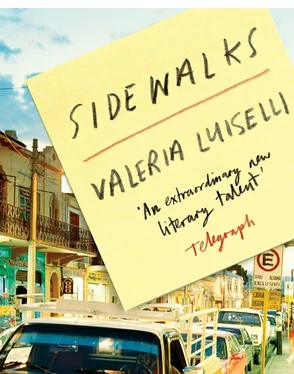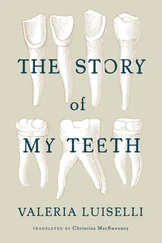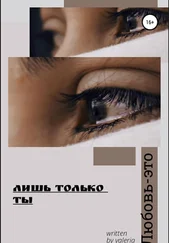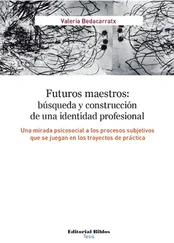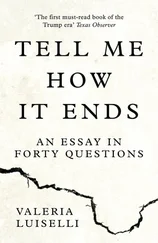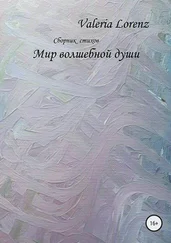We live in a world in which there has been a complete inversion of the status of the street as the public space and the house as the ultimate private space. In this redistribution of the private — public categories it’s difficult to know when we’re really inside and when out. I say this without the least hint of nostalgia. In the street we can no longer commune with solitude, and even in our own homes, we can’t be with ourselves without the windows of computers claiming our already deficient attention or the neighbors installing themselves in the backyard of our brains: there’s the Chinese guy opposite opening his fridge, and there he goes to sit in front of his rectangular, electronic furnace. So our only option is to construct small, fleeting intimacies in other spaces. My doorman is right.
Six
A doorman is the owner of the only privileged space in this city. Standing proud and upright, smoking in front of the facade of his building or leaning back in a chair in the lobby, the doorman is the guardian, the modern Cerberus, who watches over the imprecise limits between the public world and the private.
If there still exists a gaze blessed with liminal wisdom, it is the gaze of night-shift doormen. They are the only true freethinkers — generous men capable of conversing intelligently at midnight; empathetic accomplices, offering the consolation of a companionship replete with the same reprehensible vices you yourself have and defend. In contrast to all the other people in my building, the night-shift doorman smokes, doesn’t have a computer, complains about all sorts of things, and bad-mouths the neighbors to anybody willing to listen. The latter being worth its weight in gold: we never learn more about ourselves than when listening to one person bad-mouthing another.
Only in that liminal space, under the umbrella of his company, do I feel safe from the claustrophobic categories of outside and inside. And although I still don’t fully understand why my doorman, who doesn’t even sleep at night, urges me to borrow bedrooms and rent hotel rooms far from my home, I suspect that he’s absolutely right.
I’ve often thought about taking his advice: You’ve got to build a life in other rooms, I repeat to myself. You have to look at yourself in the mirrors of other bathrooms more often, he reminds me. And when the two of us have stubbed out our cigarettes and gone inside, he poses like a sphinx at the reception desk and I, who should, at that very moment, take the subway to any other place and sleep in any other room, call the elevator and press seven.
The first time I fell madly in love with Venice; now
I believe I am always in love with her, but were I to marry her,
it would be a marriage of convenience.
Rubén Darío
Ezra Pound (1885–1972)
“I am resolved not to die,” wrote Miguel de Unamuno. Although there are people who find some form of salvation in the last and happy turn of the screw — the postscript to an existence that has borne rich fruit — the rest of us should take care that the little we leave behind doesn’t turn against us. If not, we’ll go on uttering metaphysical vagaries two meters underground, like Unamuno: “I neither want to die nor do I want to want to die; I want to live for ever and ever and ever.”
None of this would worry me if it were not that some days ago, while I was wandering aimlessly around the center of Mexico City, passing the time before a doctor’s appointment, I ended up going into what I thought was a garden and turned out to be a small cemetery. Not just any cemetery, but San Fernando, the very graveyard that houses the tombs of Mexico’s national heroes and founding fathers: Juárez, Miramón, Comonfort, Guerrero, and Zaragoza. I had a book with me and all I wanted was to sit and read in a silent space until the hour of my appointment arrived. The guard at the entrance, like all those who stand vigil at the doors of official precincts in this city, barred my way and interrogated me. I’m not looking for anything or anyone in particular, I told him, I just want to sit here and read. He replied that the San Fernando wasn’t a library, but that if I wanted to go in to see the tomb of the Father of the Americas — Benito Juárez — I should put my name, the date, time of entry, and signature in the small book he held out to me. And while you’re at it, he said, put the exit time here.
I went into the cemetery in the spirit of an impromptu outing (Oscar Wilde on my side, like in that Smiths song). After strolling around the tombs of the men who forged the perpetually crumbling Mexican nation, I found a quiet corner and opened my book. It was perhaps in a moment of distraction from my reading that I raised my head and saw the inscription on the gravestone in front of me: Joaquín Ramírez (1834–1866). “The late-lamented, distinguished, but overlooked artist left this world to go to his true country.” I can’t think of a more simultaneously elegant but cruel way to predict someone’s entry into hell. Terrified, I imagined what might become of me at thirty-two, the age when poor Ramírez — whoever he was — had shuffled off this mortal coil, and what my relatives could write about me on my grave if I were to die within ten years.
At that time, I’d just returned from a long trip to Italy, where I’d been researching an improbable future book on the periods Joseph Brodsky spent in Venice. I’d visited the poet’s grave in San Michele cemetery, the hotels where he’d stayed, the cafés he’d frequented; I’d interviewed his Venetian acquaintances, doormen, waiters, stall holders, and had even found a grand-niece of Boris Pasternak, who initially promised to show me the letters that had passed between the two Russians but, in the end, could — or would — only offer me coffee and good conversation. When the trip was over and I reread my notes, I swore I’d never write anything about Venice, simply because there’s nothing more vulgar and futile than encouraging the production of even one more page about the city, perhaps the most frequently cited place in the world of books. Writing about Venice is like emptying a glass of water into the sea.
However, that day, in the San Fernando cemetery, sitting before the grave of Joaquín Ramírez, I thought I heard the voice of my conscience, as if from beyond the tomb, condemning me to the fate of all the late-lamented if I didn’t leave my last wishes in writing. So, I shall dare to write these final Venetian paragraphs.
Carlo Nordio (1904–1929)
I arrived on the island in the least poetic and most economical manner: under a blazing midday sun, slightly ill, and by bus. I crossed the bridge from the Piazzale Roma car park to the district with cheap pensions: not a single vacant room. I was beginning to feel a sharp pain in my lower abdomen. On the recommendation of a very kind Venetian receptionist — a rare combination — I ended up knocking on the door of the Convento delle Suore Canossiane. I paid a lot of euros for a room like a cell, left my suitcases under a gigantic crucifix, washed my face, and went out to give the pain the slip.
Getting lost in Venice is a cliché from which I should have been saved by my good sense of direction. But something must have gone wrong. When I finally found my way back to the convent, the clocks were striking midnight and the great wooden portal protecting the nuns from the secular outer world was already locked. There was no bell to press or ring so that I could demand of the Canossian sisters my right to a reserved, dearly bought room.
I took this defeat in good spirits. I thought I could spend the night reading Brodsky on a bench until I fell asleep — or died. Whatever malady I had, it was undoubtedly terminal, and I was destined to die on that island. What’s more, it all fit: the book I had with me was the Italian version of Brodsky’s Watermark, entitled Fondamenta degli Incurabili (Street of the Incurables) . My time had come and I ought to devote those last moments to taking stock of my life and not continue to put off thinking about things that really mattered. It would be a kind of sudden, triumphal death in Venice.
Читать дальше
